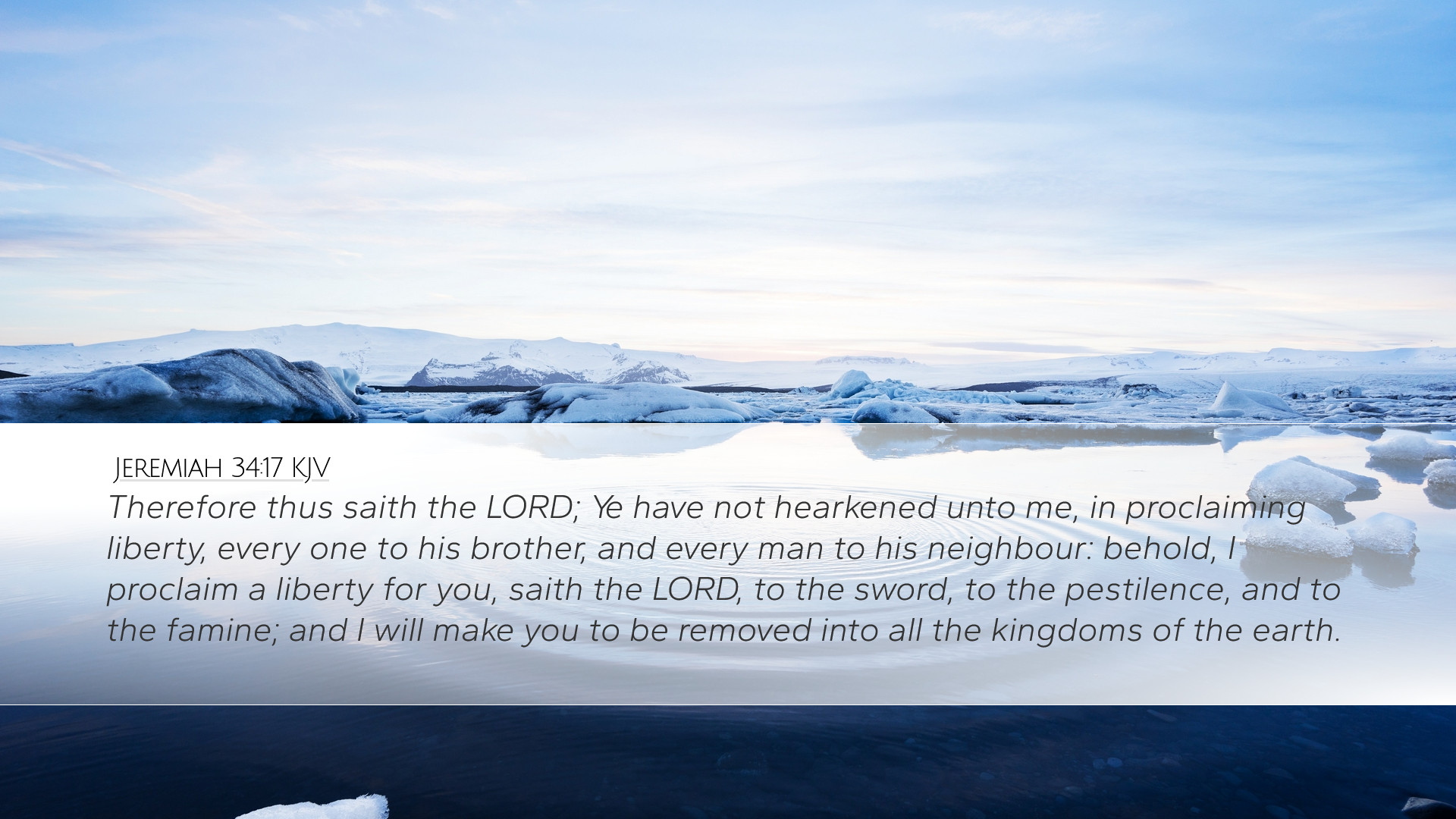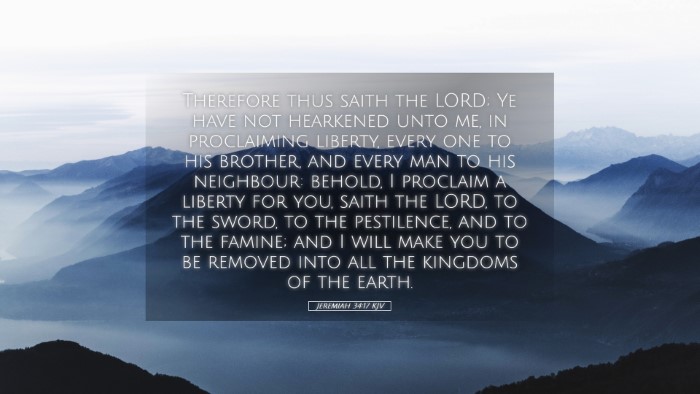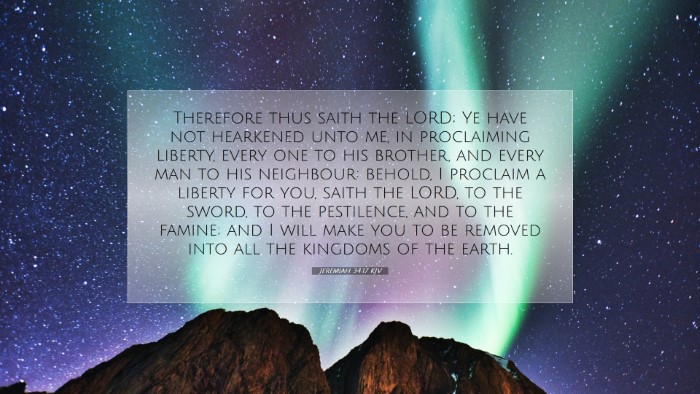Commentary on Jeremiah 34:17
Jeremiah 34:17 states: "Therefore thus saith the Lord; Ye have not hearkened unto me, in proclaiming liberty every one to his brother, and every man to his neighbour: behold, I proclaim a liberty for you, saith the Lord, to the sword, to the pestilence, and to the famine; and I will make you to be removed into all the kingdoms of the earth."
Overview
This verse is a pronouncement of God's judgment against the people of Judah for their failure to uphold the covenant of liberty that they had undertaken. Within its brevity, the verse encapsulates a profound theological and moral lesson that is crucial for understanding the nature of divine justice and the human call to obedience.
Contextual Background
The background of this verse is essential for its interpretation. Judah had sworn to proclaim liberty to their Hebrew servants in accordance with the Law (Exodus 21:2-6, Deuteronomy 15:12-18). However, during the Babylonian siege, they retracted their promises and reverted to practices of oppression and economic expediency. This revolt against God's command was met with divine retribution.
Matthew Henry's Insights
Matthew Henry emphasizes that the Israelites had been false to their word and disobedient to God's commands. He notes, "They were commanded to proclaim liberty, and they had promised it; but now, when the time was come, they broke their faith." This highlights the gravity of failing to fulfill divine expectations—God's instructions are seen as both a command and a covenant. Henry further explains that the ultimate consequence of their actions was not only physical captivity but also spiritual degradation.
Albert Barnes' Commentary
Albert Barnes expands on the theme of liberty in this verse, recognizing it as a fundamental aspect of God's covenant with Israel. He writes, "The failure to heed God’s directive led to a reversal of liberty; rather than granting freedom, God proclaimed a form of liberty that would result in judgment." He asserts that this judgment was particularly poignant given that they had chosen to withhold freedom from their brothers, thus incurring divine wrath. Barnes elaborates that God's relationship with His people is governed by mutual obligations; when they neglect their responsibilities, they provoke severe consequences.
Adam Clarke's Interpretation
Adam Clarke focuses on the harsh realities of what God was proclaiming. He states, "To the sword, the pestilence, and the famine" indicates severe and multifaceted judgments that would encompass all aspects of life in Judah. Clarke interprets this as God allowing the worst possible scenarios as a direct result of their unfaithfulness. He also asserts that God’s pronouncement of “liberty” was, in fact, a grim irony, illustrating that by denying others their liberty, they were subjecting themselves to bondage of worse kinds.
Theological Reflections
This verse provides rich theological reflections on the nature of God's justice and mercy. It serves as a reminder that God's calls for liberty and justice are not mere suggestions but are rooted in His divine character and covenantal fidelity. The Jewish leaders had not just failed their community; they had failed God, demonstrating a profound disregard for both social righteousness and covenantal obligation.
Practical Implications for Leaders
For pastors and church leaders today, this text encourages a serious reflection on the commitments made to congregants and the surrounding community. Questions for reflection include:
- In what ways might we, intentionally or unintentionally, withhold liberty from others?
- Do we uphold our commitments and proclaim justice within our communities?
- What are the consequences of ignoring God's call for justice and compassion?
Concluding Thoughts
The lesson of Jeremiah 34:17 resounds through the ages, echoing a divine demand for justice built on faithful obedience. It challenges the reader—whether clergy or layperson—to recognize their role in proclaiming liberty, not just as a theological concept but as an active principle that shapes social justice and ethical conduct. Through their actions and commitments, believers shape the narrative of God’s covenant with mankind, calling upon each other toward a life of integrity, compassion, and righteousness.


